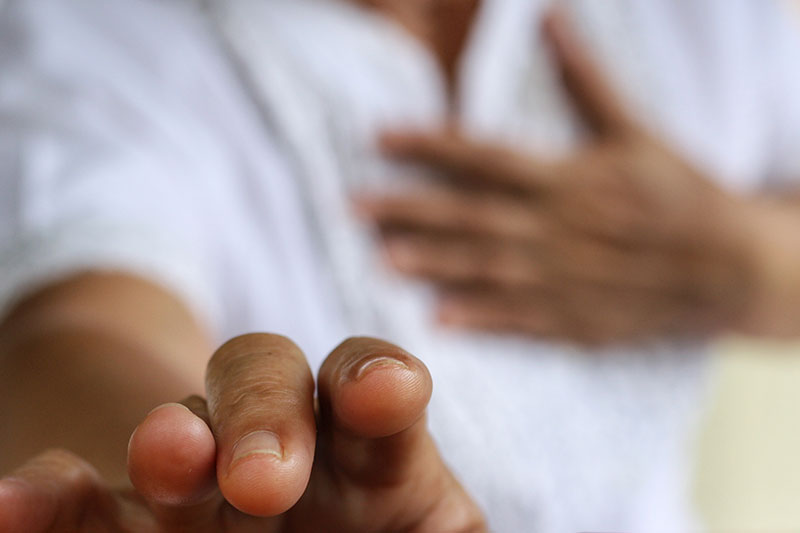
No one likes to be called obese, even when most of us have some extra pounds. So, what’s the difference between being overweight and obese? And how to know when you’re putting your health on the line?
Well, here are six things that mean you’re obese. Six clear signs that you might want to eat a little better and work out a bit more. Staying fit is hard, we know, but that doesn’t mean you shouldn’t try! One meal at a time, let’s lose some extra weight.
Belly Fat
Do me a favor and measure your waist. If you’re a woman, it shouldn’t be greater than 35 inches. And if you’re a man, then it shouldn’t surpass 40 inches. Although this is not precisely the best way of knowing how much fat there’s in your body, it will give you an idea of how little or how much you’re over your desired weight.
Go on, get a measuring tape and check yourself. It comes without saying there are many more scientific ways of checking if you’re in shape, but it’s a start!
Shortness of Breath
Having large thighs or belly fat and being obese are two different things. If you’re obese, you’re already experiencing some health problems, and they all start with constant shortness of breath.
And we’re not talking about how you feel after a strenuous workout, but about the shortness of breath you feel after climbing a short flight of stairs. This is called chronic fatigue, and it can lead to severe health problems. Excess weight leads to inflammation in and around your airways, and that causes difficulty breathing.
Trouble Sleeping
Did you know being obese messes with your sleep cycle? In fact, having difficulty enjoying a good night’s sleep is a common symptom with people with excess body fat.
And there’s more. You’ll have difficulty sleeping, but so will others around you — snoring is also common in obese people. Sleep apnea, it’s called, and it means that you experience an airway obstruction that causes sudden pauses in your breathing. This makes resting hard, and resting is critical for enjoying an active lifestyle that could help you lose weight.
Back and Joint Pain
All that excess weight takes a toll on your bone structure, ligaments, spine and joints. This means that if you’re obese, you’re constantly in pain. The back is the first one to suffer, and then it’s your knees and feet.
Our bodies are strong; we can carry our own weight at least twice, but don’t push it. Excess weight will eventually be too much for your bones that don’t get bigger as you gain weight, unlike the rest of your body. On the contrary, they weaken.
Depression
This might not seem like a typical symptom of being overweight, but obese people are harshly judged by others, leading to depression, anxiety and stress. Lack of self-esteem is an actual condition with health consequences.
Keep in mind depression is not just feeling moody; it’s a medical condition, and it’s risky. You don’t just stop being depressed; you need treatment to get over the condition. And it’s not just you who suffers, but the ones around you. If this sounds like you, talk to your loved ones and keep your chin tall.
Sweating
Last but not least. Did you know obese people sweat excessively? And not only after working out or carrying heavy stuff. Hyperhidrosis, as it is called, happens because obese people have more sweat glands per inch of skin than a person with an average weight.
Sweating can also be a symptom of diabetes, thyroid problems or even infections. We might be looking at generalized sweating or simply sweaty hands or backs. What matters is that if you sweat a lot, you might already be obese.
Stay Fit, And Reach Your Weight Goals
No one enjoys having excess body fat — it’s just no fun. It’s dangerous, too, and although losing weight is much more complicated than gaining it, you must at least try. Talk to your dietitian and join a spinning class.
We can all lose weight — it’s just a matter of having good habits. No one said it would be easy, but we know with the right help, you can reach your weight goals in time. Let’s get back in shape; we can all do this together!



